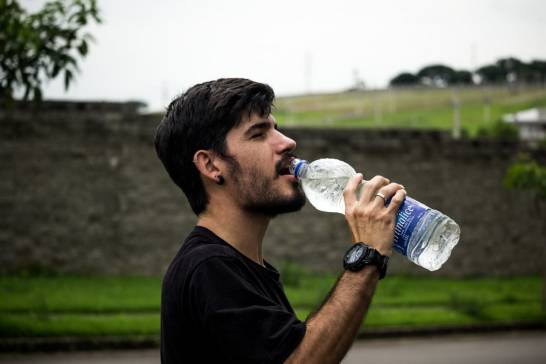Sure! Here’s the translation into American English:
With the high summer temperatures in Texas, dehydration becomes a constant risk for the population. In response to this issue, a team of researchers from the University of Texas at Austin has developed an innovative portable and non-invasive sensor designed to measure a person’s hydration status in real-time. This advancement was recently presented in the journal Proceedings of the National Academy of Sciences.
The device uses bioimpedance, a technique that employs a low-intensity electrical current that passes through the tissues of the user’s arm. Through this method, the sensor is capable of measuring how that electrical signal behaves. Since water is an excellent electrical conductor, well-hydrated tissues facilitate the flow of current, while dehydrated tissues offer greater resistance.
Nanshu Lu, a professor at the Cockrell School of Engineering and the study’s lead, stated: “Dehydration is a silent threat affecting millions of people every day.” Lu emphasized that their sensor provides a simple and effective way to monitor hydration in real-time, allowing individuals to take action before dehydration symptoms arise.
The device connects wirelessly to a mobile app, allowing for continuous tracking of hydration, even during everyday activities such as walking, working, or exercising. Trials that included tests with diuretics and monitoring over 24 hours showed that changes in bioimpedance of the arm were strongly correlated with body weight loss, indicating water loss.
Matija Jankovic, co-author of the study and a postdoctoral researcher in Lu’s lab, noted: “Our experiments show that bioimpedance is sensitive to hydration changes and aligns well with other measures of the body’s fluid status.” Unlike traditional methods, such as urine or blood analysis which are invasive, this new sensor represents a significant advancement toward continuous and personalized hydration monitoring.
Experts suggest that the device could be useful not only for athletes but also for workers in hot environments, such as firefighters, and could aid in the diagnosis and treatment of conditions like kidney or cardiovascular diseases, as well as chronic dehydration cases.
Although for now the sensor measures relative changes in hydration levels, the researchers plan to establish absolute reference values in the future by analyzing large-scale data. They are also exploring new designs, including breathable electronic tattoo-like sensors and devices that can absorb sweat to enhance the comfort and effectiveness of the device.
“This is just the beginning,” Lu concluded. “Our goal is for anyone, at any time, to easily know their hydration status.”
via: MiMub in Spanish










